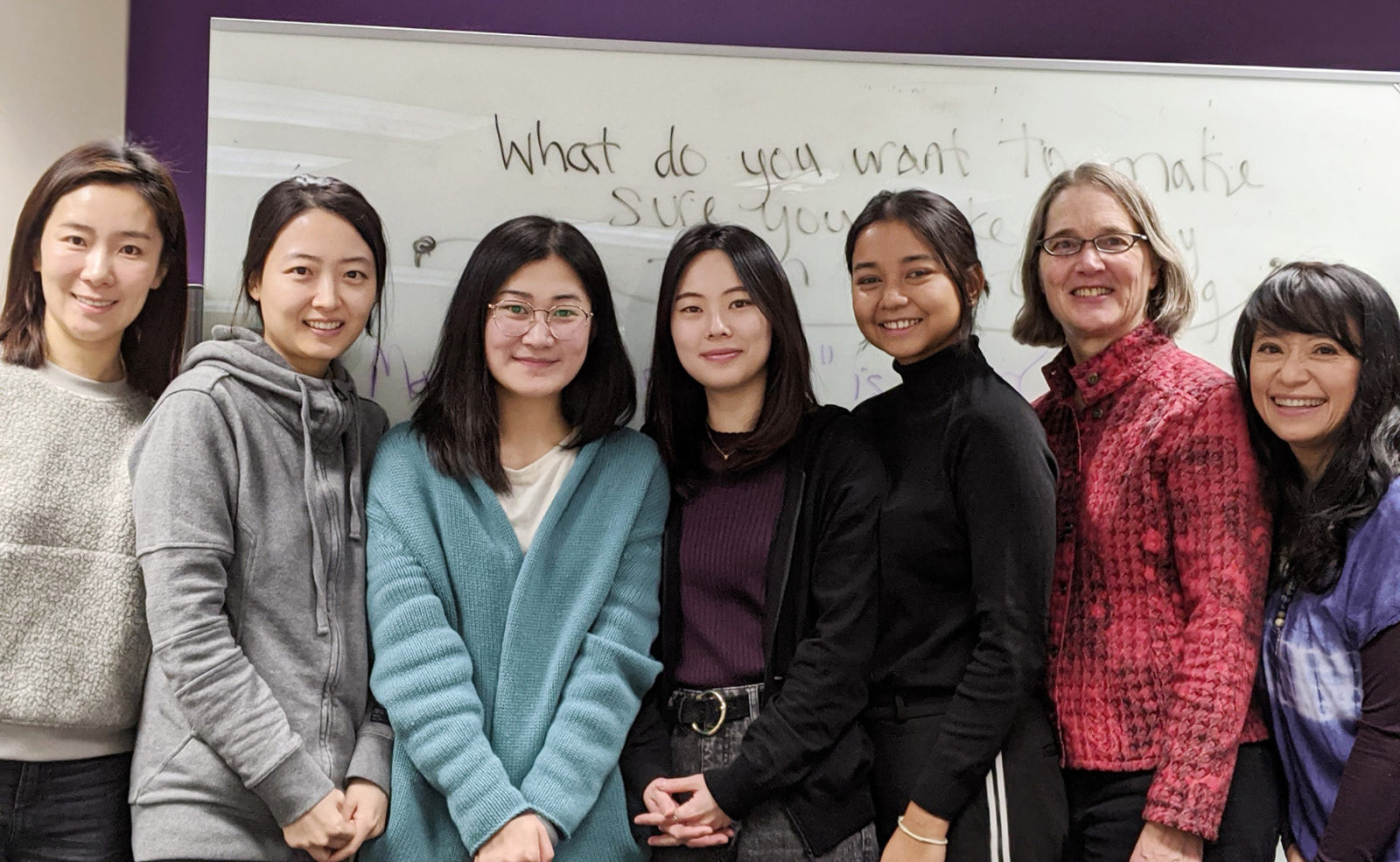Supporting Asian Americans Who Are Living with Dementia

Asian Americans often experience barriers to accessing dementia care and resources, from stigma to language barriers and lack of culturally sensitive care. In 2019, Seattle’s Asian Counseling and Referral Service (ACRS) reached out to the de Tornyay Center for Healthy Aging to collaborate on a dementia research project. ACRS wanted to better understand Asian and Pacific Islanders’ perceptions, thoughts, and knowledge of dementia.
While dementia stigma and myths are common in the United States, there hasn’t been much research into Asian and Pacific Islander Americans’ knowledge and perspectives on dementia. Insights from the project can be used for future programs and resources that could benefit the community.
A University of Washington School of Nursing PhD student, Shumenghui Zhai, stepped up to lead the effort. For her work on the project, Zhai won the Western Institute of Nursing’s 2021 Carol A. Lindeman Award for a New Researcher, the first UW student or faculty to win the award since 2008. She appears in the photo of project moderators, above (left-right: Shumenghui Zhai, Boeun Kim, Jingyi Li, Dahee Wi, Sopheakvatey Chey, Basia Belza, and Sangjan Rungruangkonkit; not pictured: Gail Li).
There is still a lot we don’t know about dementia, but researchers know that it’s not a normal part of aging and it’s not the same as just forgetfulness, like occasionally misplacing car keys. There’s no cure but, with early identification, steps can be taken to manage dementia symptoms and to improve quality of life for patients and their caregivers. Researchers have identified numerous factors that may protect against dementia, such as healthy lifestyle activities like eating well and exercising.
The ACRS research project had 62 participants, all aged 50 or older, organized into four focus groups based on language and ethnicity: Chinese, Korean, Samoan, and Cambodian. Trained moderators led discussions in the groups’ native languages, except for the Samoan group, who spoke fluent English. The researchers analyzed the focus group recordings in the original language. They then translated the results into English to ensure they were as accurate as possible.
The languages themselves can sometimes provide insights. In their paper on the project, Zhai and colleagues wrote, “Some of the indigenous words associated with memory loss did not have an exact word in English. For example, in Khmer វិកលចរិក – ‘vikalcharik’ implies a psychosis which carries judgment by others; in Chinese, ‘失智’ indicates [the total loss of] one’s intelligence.”
All the cultural groups talked about the stigma associated with dementia and considered dementia to be shameful or embarrassing.
“[If I have dementia one day] don’t tell anyone about my situation and my illness,” said one participant. “They will treat me as an idiot.”
“[Losing memory is] loss of dignity as a human being,” said another.
The participants were also worried about recognizing family and community. “They are scared and anxious,” said Zhai. “And they thought dementia is a part of the normal aging process. That’s actually a misunderstanding of cognitive aging and dementia.”
There were also many differences in perspectives and beliefs on dementia among the ethnic groups. Korean participants saw memory loss as a very negative experience, with one saying, “dementia was … the worst hell.” In contrast, Samoan participants took comfort in God, saying, “Everything is fine because God is gonna help.”
The groups cited some common factors they thought contributed to dementia, such as falls, social isolation, unhealthy lifestyles, and conditions like strokes. Chinese participants thought that a good marriage could improve memory and a bad marriage could hurt it. They also believed electronics and medication could hurt memory. Korean participants said pollution and genetics contributed to getting dementia, while Samoan participants thought that lack of support or even abuse by family members could be factors. The Cambodian participants believed that living through the Khmer Rouge regime made them more prone to brain and memory issues.
All the focus groups discussed potential protective factors for dementia, such as using their brains, positive attitude, and daily journaling to maintain and improve their memory. The Samoan group said living with pets was helpful, while the Korean participants shared folk remedies, such as carrying a walnut to rub on their palms to stimulate brain function.
For future programs and resources, the participants shared that they were interested in learning more about causes, diagnostic criteria, tests, medications, and evidence-based practices.
People across cultures and countries have stigma and misconceptions surrounding dementia. By understanding how each culture views dementia, as well as immigrant-specific experiences, we can tailor future educational content and programs to be more effective.
This research project highlighted the diversity of both negative and positive beliefs about dementia in Asian and Pacific Islander American cultures. It emphasized the need to combat stigma and myths about dementia, for example, teaching what is and is not a normal part of aging. In their paper, Zhai and colleagues point to the importance of having an educator with the same cultural background, who understands culturally specific perspectives on dementia.
“The findings can help to build an effective intervention program,” said Zhai.
 Contributor Paige Bartlett is a public information specialist at the UW School of Nursing de Tornyay Center for Healthy Aging.
Contributor Paige Bartlett is a public information specialist at the UW School of Nursing de Tornyay Center for Healthy Aging.
This article originally appeared in the August 2021 issue of AgeWise King County.
![Aging & Disability Services for Seattle & King County [logo]](https://www.agingkingcounty.org/wp-content/themes/sads/images/seattle-ads-logo.png)